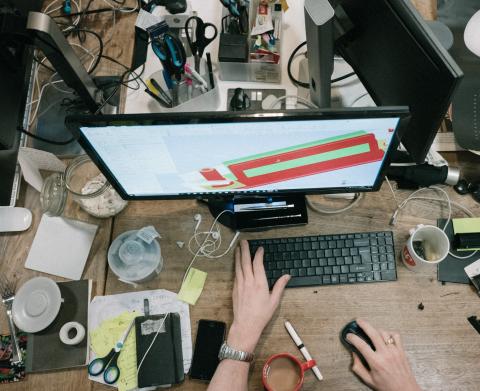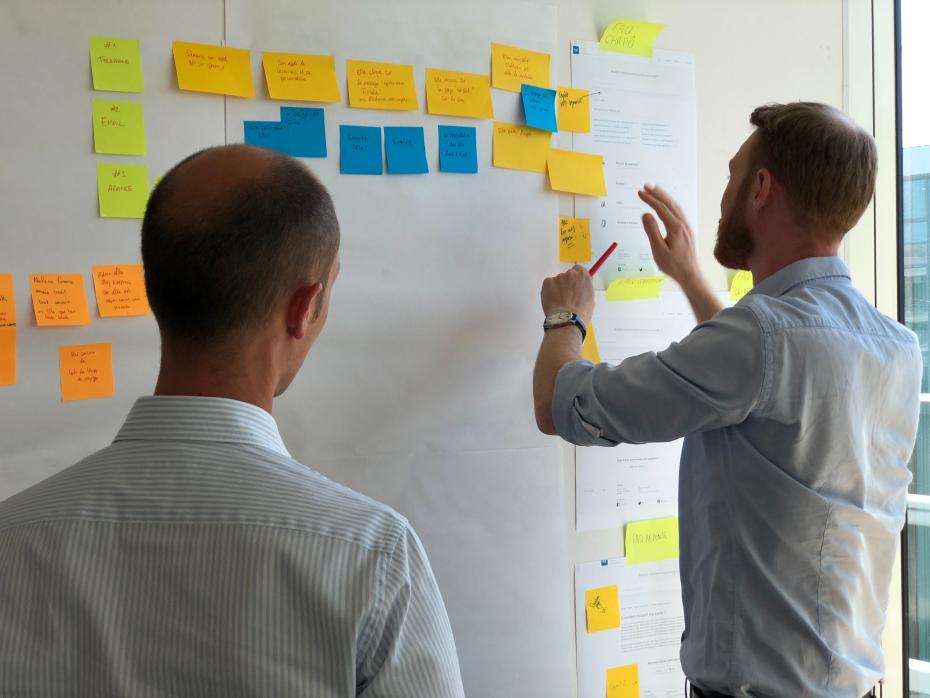The past year has presented numerous, often daunting, challenges for instructors in higher education. As the Covid-19 pandemic erupted alongside natural disasters and acute political tensions, faculty had to quickly pivot to teaching remotely to students with their own difficult circumstances.
Many faculty reported difficulties with the abrupt movement to online teaching with little to no experience or training, lack of visible feedback or interaction with students, Zoom fatigue, and how to grapple with blurred boundaries between their professional and domestic lives while teaching from home.
These issues were exacerbated for faculty from underrepresented groups or with personal health issues, and those who have children or elderly care responsibilities, for example.
It is perhaps no surprise that we are witnessing an unprecedented global mental health crisis and increased faculty burn-out. So how can we support faculty as they face the enduring challenges echoing from 2020 into a new year of teaching during a pandemic?
We are an interdisciplinary group of faculty from backgrounds spanning psychology and neuroscience, philosophy, chemistry, and art and art history, and varied teaching and administrative responsibilities and geographic regions. We have teamed up to share our collective top five tips for building and sustaining well-being for faculty, instructors and staff during and, ideally, well beyond the pandemic.
1. Take advantage of available resources
Find out – ask senior colleagues, for example – what resources your institution offers to support faculty. Some universities have adapted to faculty needs and offer increased tenure clock time, funds to support additional childcare responsibilities, networks so that faculty and staff can form childcare “pods”, well-being workshops, and training and staff support for teaching with technology on multiple platforms.
2. Remember that academia is not normal right now
Like the rest of the world, academia is not functioning under “normal” circumstances, and we must remember that. Don’t hold yourself, or others, to the standards that existed before the pandemic. We cannot expect ourselves to produce at the same level, whether it is publishing or preparing a perfectly polished lecture, nor can we reasonably expect our students to complete the same course requirements.
You might reduce workload and teaching expectations or include explicit flexibility written into course syllabi. You might also invest more time into relationship building during class or meetings: using icebreakers or small groups for check-in moments will increase motivation to engage remotely both for the students and for you.
For your own work, understand you may accomplish less, so prioritise the projects that are most important and valuable to you; use, for example, the urgent/important matrix. It might also be an opportunity to reinvent your professional identity or to pivot to take on new directions in your own work or teaching.
Devoting less time or mental energy in academia can contribute to guilt and shame because it goes against the grain of societal convention. Despite this, don’t hesitate to honour what you find valuable, especially if it is non-work-related, by allocating time there and releasing guilt about your choices. Your students and colleagues will benefit from your authenticity.
3. Practise kindness towards others and yourself
This is an important time to practise generosity and mentorship towards others, especially students and adjunct instructors who have less security and privilege in these times. To the extent that you can, support and offer guidance to others; science shows that practising kindness towards others boosts your own mental health. Also don’t forget to practise kindness towards yourself. Remember that these are real challenges and we cannot expect ourselves to be unaffected. The Greater Good Science Center offers easy, accessible, simple strategies to cultivate self-compassion to weather challenging times.
4. Prioritise well-being
Academia faces a mental health crisis. Students and faculty report increased rates of serious depression and anxiety that have only worsened during the Covid-19 pandemic. Academics must support the well-being of our students and ourselves. Actions can include speaking openly with colleagues and students about mental health, normalising struggles, and offering resources from class materials to local counselling and other freely available stress-reduction and well-being exercises. More than ever, it is important to make extra efforts to stay connected with others, which is shown to buffer us against the serious effects of anxiety and depression. Finally, don’t be afraid to nurture humour during these dark times where appropriate. It may provide temporary mental respite and can help undo the cardiovascular effects of stress.
5. Remember that this is temporary
We are in an acutely stressful and atypical period in human history. Many of us are experiencing intensified emotions of sadness, anger and anxiety. Neither the circumstances – teaching remotely, school and childcare closures – nor our overwhelming emotions as they are now will last forever; like an ocean wave, they will peak and fade.
Although these tips may be more vividly relevant now, we hope they provide insights that aid well-being well beyond the Covid-19 pandemic.
June Gruber is an associate professor of psychology and neuroscience, Kirk Ambrose is a professor of art and art history and director of the Center for Teaching and Learning, and Becca Ciancanelli is inclusive pedagogy lead, all at the University of Colorado Boulder.
Lisa Miracchi is an assistant professor of philosophy at the University of Pennsylvania.
Sabrina Marques is an assistant professor of studio art and director of the Kathwari Honors Program at Western Connecticut State University.
Paulo Boggio is professor in the Social and Cognitive Neuroscience Laboratory at Mackenzie Presbyterian University.




comment